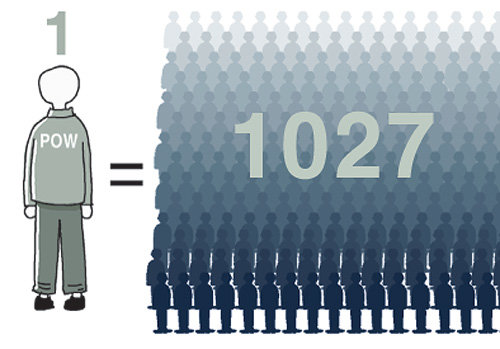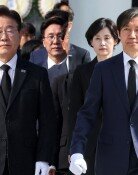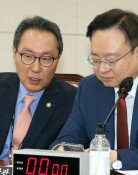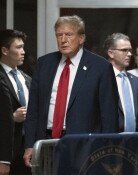1,027 to 1 exchange of war prisoners
1,027 to 1 exchange of war prisoners
Posted September. 29, 2020 07:46,
Updated September. 29, 2020 07:46

In 2006, two Israeli soldiers were abducted by Lebanese militant group Hezbollah near the border between Israel and Lebanon. There was a controversy regarding whether the abduction took place in Israel or Lebanon, which determines whether it was an abduction or a justifiable arrest. Following the event, Israel carried out an attack, which led to over 30 days of war between the two countries.
In 2014, Palestinian fundamentalist militant organization Hamas dug an underground tunnel from Gaza Strip to an Israeli camp and killed two soldiers and abducted one. Hamas had detained the solider for five years. Israel, which had always taken a firm stance, responded to negotiations this time. The growing criticism from the international community during its war with Lebanon, as well as unprecedented domestic opposition, seemed to be what drove Israel’s decision. The country agreed to release 1,027 Palestinian prisoners for the exchange of the Israeli soldier.
Putting aside the discussion on whether Israel’s invasion can be justified, the aforementioned two stories have one thing in common, which is that even a single citizen should not be abandoned by a country. That is the reason for the existence of countries and authorities since the beginning of history.
The victim of the recent killing by North Korea in the Yellow Sea was a civilian, not a soldier during wartime. It was a deliberate murder, not the result of an accidental discharge. The South Korean military and government are saying the incomprehensible words even if they had been launched a day ago.
The biggest mistake of Vladimir Lenin’s Theses on the National Question is the statement that the nation and its military were born to protect the interests of those in power. It is not true. While they do play such a role, the essence of their existence is to protect the wealth and life of the public. Activist groups in opposition to military dictatorship in South Korea were in favor of Lenin’s ideas. What they wanted was to build a country of all people, not a country of those in power.
Looking at the developments in the last few days, it is confusing whether South Korea is a country of all people, of those in power, or of a political administration. Even the perspective of viewing North Korea leader Kim Jong Un as an enlightened despot has emerged. Where are the people who harshly criticized an enlightened despot as a fraudulent dictatorial power?
Headline News
- Israel prepares for retaliation against Iran
- Samsung reclaims top spot, surpassing Apple in smartphone market
- 77% of Koreans in 20s and 30s are 'Kangaroo Tribe' due to job crisis
- KBO referees embroiled in controversy over ABS decision concealment
- Inflation, oil price surge put double shock on global economy







